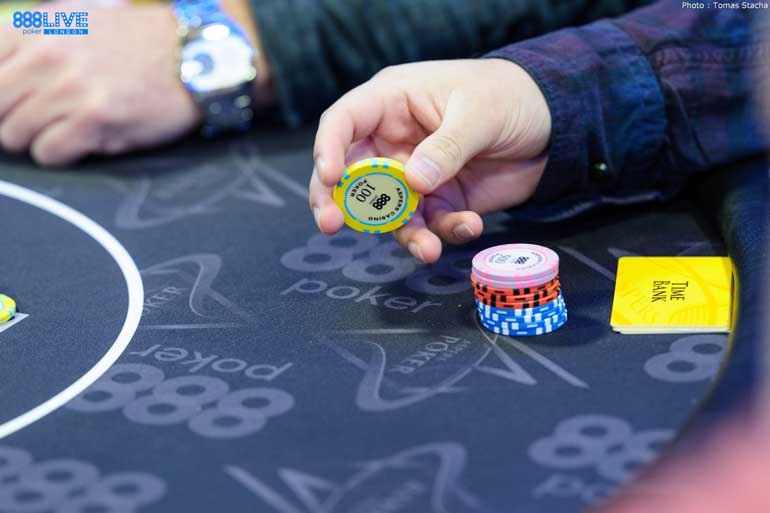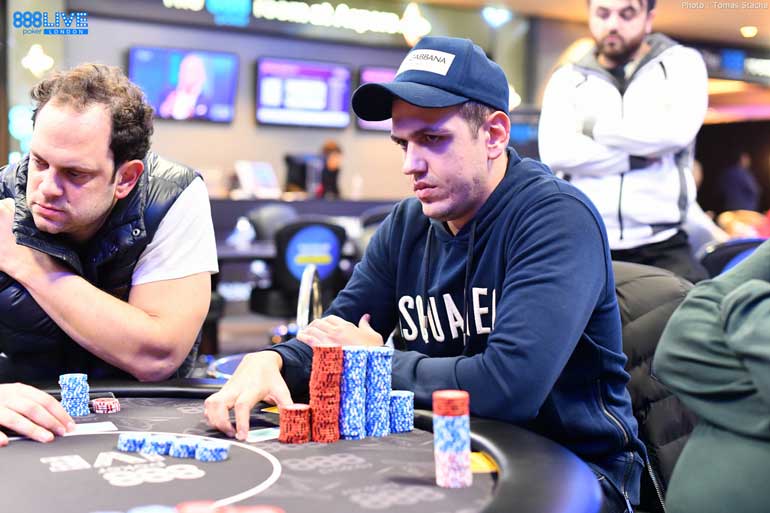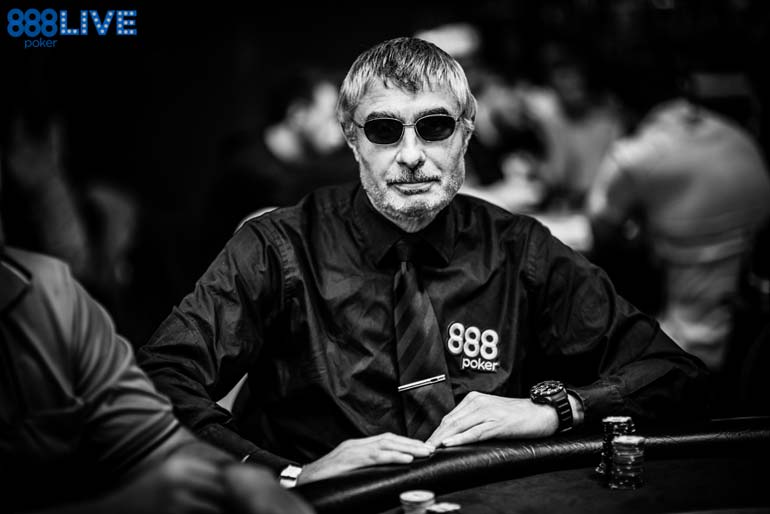When I told my mum I was going to play poker professionally, she had a meltdown. Her understanding of the game was based entirely on the horror stories she’d seen in the movies. Since my dad struggled with gambling, she’d had her own negative experiences too.
She’d dismissed poker as reckless gambling. She believed the community was full of hopeless degenerates. They were either losing their houses or getting kneecapped and mugged when they won.
My attempts to convince her otherwise fell on deaf ears. They were very logical and backed up with graphs and profits. Still, all she heard was the deluded excuses that all typical gambling addicts spit.
It’s hard to argue that poker isn’t just mindless gambling to someone with little to no experience with the game. The presence of stake and cards seem so damning.
But are they?
I’ve compared poker to chess in a previous article. Even as a chess noob, I've no problems convincing someone that chess isn’t gambling.
And what’s the difference between poker and chess? You guessed it; it’s the cards and stake.
So, cards + stake = gambling, right? Who knows?
Let’s try to figure it out.  Poker - What Is Gambling?
Poker - What Is Gambling?
What Is Gambling?
Whether or not you consider poker gambling depends on your interpretation of the word ‘gamble’.
Wikipedia describes it as the following:
| ‘Wagering something of value on an event with an uncertain outcome with the intent of winning Something else of value. Gambling thus requires three elements to be present: consideration, risk, and a prize.’ |
So, forget cards + stake. Gambling requires THREE things:
- Risk (chance)
- Consideration (an amount wagered)
- Prize
In this light, poker is clearly gambling: We have a stake, a chance of losing, and a prize if we win. But don’t these constraints apply to all areas of life?
What Isn’t a Gamble?
The Stratosphere Casino in Vegas has a mini theme park on top. One of the rides is called X-Scream. It dangles you off the edge of the building, around 900 feet in the air, in the name of ‘fun’.
BMJ Injury Prevention claims that four people die on roller-coasters in the USA each year (and others get banged up or bruised). So, riding the X-scream is a gamble by definition.
Even if the risks are low, it still has all the necessary ingredients:
X-Scream Stratosphere Casino Las Vegas
1: Consideration: Your life/body (from severe or minor injury).
2: Risk: The chance of an accident.
3: Prize: A adrenaline rush and sense of achievement
And by extension, there are a few things in life that aren’t a gamble?
- If we cross the street; we risk getting hit by a car
- If we eat a carrot; we risk choking
- If we wear red chinos, we risk getting mowed down by a rogue bull
Though none of these is likely, they’re more of a gamble than betting the nuts on the river…ironically.
Almost everything is just another measured case of risk vs reward, and isn't this precisely what good poker is?
So, is poker gambling?
Well, I’d say quite conclusively, Yes, but so are a lot of other things.
The truth is that it’s impossible to live an exciting life without risk. As Facebook founder Mark Zuckerberg said:
“In a world that is changing really quickly, the only strategy that is guaranteed to fail is not taking risks.”
As someone that’s done pretty well from the risks he took, I think it's safe to say his argument is as sharp as his nose.
Social Acceptance
Even though we’ve established that most things in life are a gamble, there are undoubtedly things with more risk than others.
I know - you’ve got ‘a system’, for example. But it’s pretty obvious to see that riding a roller coaster in Vegas is less of a gamble than betting your life savings on red.
- Losing the first gamble would be seen as a freak accident.
- While losing the latter would probably be regarded as ‘you’re own stupid fault’.
The question is, who draws the line between what gambles are socially acceptable, and how do they even decide where to draw it?
Whereas there’s no concrete law to this, I think it’s once again simply a matter of risk and reward.
I guess the concept looks something like this chart below:
| Least Socially Acceptable | Most Socially Acceptable | ||
| High Risk Low Reward |
High Risk High Reward |
Low Risk Low Reward |
Low Risk High reward |
Let’s say you’re offered the chance to gamble $10,000 on the spin of a ten-sided die. Your opponent is a degenerate. They’re offering you even money on numbers 1-6, while they win with a 1, 2, 3 or 4.
As a 60% favourite, there is no question that this is a pretty profitable gamble for you, But would it be a socially-acceptable gamble to take?
To give a simple ‘yes’ or ‘no’ would be a matter of perspective. But I think few would disagree that it’s a way more socially acceptable gamble for someone with $100,000 in the bank than for someone with only $2,000. And they would have to borrow $8,000 to make the bet.
- In the above scenario, the first person is likely making a profitable investment (low risk).
- The latter is making an unnecessary and dangerous gamble (high risk).
I think a lot of poker’s negative social stigma comes from tales of people like the second person in this example.
In relevant terms, this person doesn’t manage their bankroll, has poor financial management and/or doesn’t play poker well.
- These kinds of players have a high risk of ruin and are likely to lose.
- They fuel the negative stereotypes and scare stories.
- They made my mum so concerned when I told her I’d decided to play poker full time.
What About Skill?
Of course, one of the most significant differences between poker and most other forms of ‘gambling’ is the prevalence of skill. Whereas there is a lot of luck and chance in a poker hand, this reduces significantly as the sample of hands increases. What About Skill in Poker?
What About Skill in Poker?
Poker players can get defensive when people try to dismiss poker as " gambling". Many outsiders see poker with the same negative social stigma attached to skill-less casino games like roulette and craps.
Players spend countless hours working on their poker strategies. So, this comparison feels like an injustice.
It’s a frustrating discussion to have with poker muggles. The importance and complexity of poker strategy aren’t apparent until you immerse yourself in the game.
The ‘poker is luck’ chant is where the whole ‘is poker gambling’ debate gets heated.
May the Odds Forever Be in Your Favour
A solid place to draw the line between socially acceptable gambling is to look at casinos and sportsbooks. Both are business establishments rather than gambling halls.
But many dismiss the people that use their facilities as ‘gamblers’.
- So, what separates the house from the punters?
- Why is one considered socially acceptable when both parties are required to gamble?
- What’s the difference?
As far as I can see, there are two main differences. (We can argue whether casino jobs and facilities have a positive impact on communities another day):
1: The house edge. The most significant difference between a casino and a gambler is the house's edge. In every game that runs, the casino is a favourite to win. It’s the certainty that casinos depend upon.
2: Their risk of ruin. Casinos are typically huge enterprises with a lot of money. The table limits and maximum bets ensure that they have an extremely low risk of ruin. In reality, the biggest threat to a casino is a lack of action.
With this in mind, it seems that good poker players have a lot more in common with a casino than regular "gamblers".
- If they manage their bankroll correctly and choose their opponents well, they minimise their risk of ruin.
- They squeeze out an edge on every hand they play.
- They're gambling against their rivals in the same way the house does.
Wall Street Poker Players
Casinos offer a great comparison between good winning players and gambling. But they don’t fit the majority of poker players who are either big or small losers.
In my mind, the most appropriate comparison between poker and gambling is in the stock market. I’m no Jordan Belfort, But I know enough about investing to see that the best investors are those that have an edge over the rest.
 Wall Street Poker Players
Wall Street Poker Players
Whether from inside knowledge or a superior analytic program, the most skilled investors will typically make the most money.
- In a casino, the house edge is more rigid (like in roulette, for example).
- But the results in the stock market are more proportionate to an investors knowledge and skill.
So, it is possible to beat the stock market with good decisions. But even perfect decisions can never overcome a casino's house edge.
More than that, the unstable nature of the stock market gives investing the same thrill and adventure that you find in poker. You can never replicate this thrill in a casino where you bet with a known disadvantage.
So, do I think poker players are gamblers? Unquestionably, yes. But good players are gambling the same way a casino or investing expert does, with the odds in their favour.
In poker, skill pays. What can be wrong with that?


